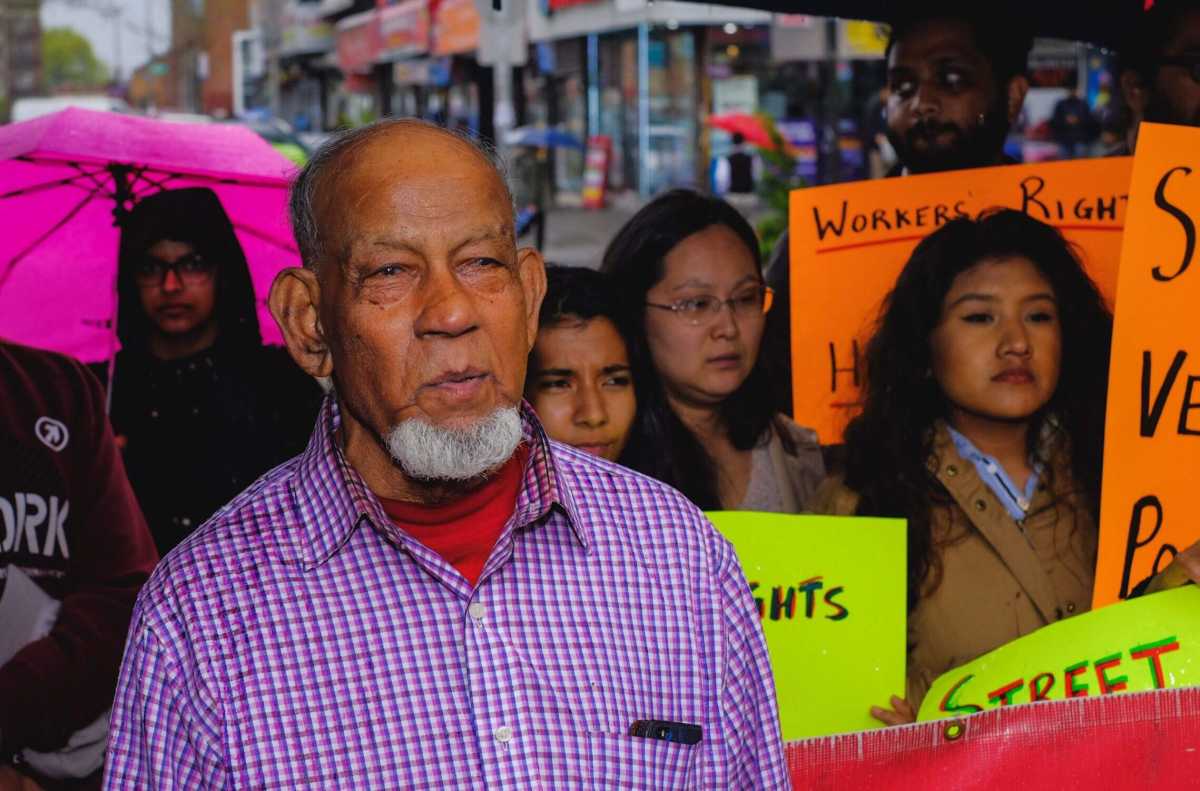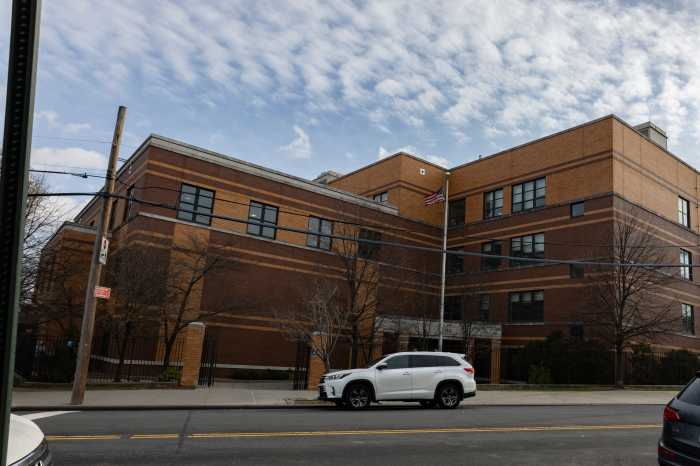Street vendors in Queens will see reparations for fines and destruction of property by the city Department of Health and Mental Hygiene (DOHMH) after two years of litigation and a settlement with activists.
Up to 300 vendors will get paid out from $188,000 from the city after a class action lawsuit claimed the agency had confiscated and destroyed the carts and stalls of immigrants who had been issued violations while selling goods on the street.
Sanwar Ahmed claims he was only trying to make his “bread and butter” when a nearby brick-and-mortar business owner called the police on him resulting in a violation.
But it went a step further when the DOHMH confiscated the cart which Ahmed built with his own hands and disposed of it.
Ahmed was now left without a means of income, he said at a rally in Diversity Plaza in Jackson Heights on Monday. But with the settlement, himself and others in his situation will now get at least $585 from the city.
Ahmed is an emigre Bangladesh in his late 80s and has sold jhal muri on the streets of Jackson Heights until 2017. The suit claimed Ahmed was a licensed city mobile food vendor when he had his property taken away.
Ana Buestan was another immigrant from Ecuador who sold flavored ices in Brooklyn for 15 years until she was subject fines, despite being licensed.
Buestan, like Ahmed, was not given a voucher of any kind to claim her cart after it was taken. But after paying a $1,000 fine, she was led to believe that the pushcart was thrown away.
With over a dozen people at the rally, Matthew Shapiro from the Street Vendors Project at the Urban Justice Center called on the city to recognize the contribution of vendors to their communities.
“We filed this case because we heard about this situation and we had always heard about enforcement actions being taken throughout the city where vendors had carts they had made themselves taken by the police or the [DOHMH] and then thrown in the garbage,” Shapiro said. “We don’t think the city should ever do such harsh enforcement action against vendors; they should be respecting them as small businesses. Sometimes they do seize people’s property when there are violations, but there’s supposed to be a real legal process that happens.”
Shapiro said the city defended this action by calling the property “makeshift” with no real value, although the value to the vendors may have been substantial.
Kazi Fouzia is an organizer with Desis Rising Up and Moving who took a lead role in the class action lawsuit and said she was once a street vendor and understands how city policies leave street vendors in a no-win situation.
DRUM and the Street Vendors Project called on the city to make policy changes that will help people capitalize on their ability to sell goods on the street rather than getting reprimanded after the fact.
The city often issues citations to vendors working without a permit of up to $1,000 while a cap was put on new permits back in the 1980s. In order to obtain a permit, people are often forced to buy out vendors who have had theirs for decades for up to $20,000, Buestan said.




































